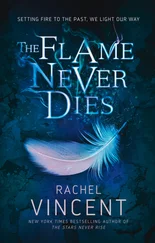“When Holden returns, back the van as far into the alley as you can without drawing attention, while he puts his gear on. Then, get the plastic sheeting and a roll of duct tape from the emergency kit in the van. Lay some plastic in the bottom of my van. Use a double layer. If you get rotten food in the carpet, you’ll spend all night scrubbing it out.”
I frowned, disturbed by the realization that my father was more worried about the carpet of his fourteen-year-old van than about the body whose disposal he was planning. But that was one of the things that made him a good Alpha. He did what had to be done. And he thought of everything. Everything.
My father plucked his glasses from his desktop, wiping the lenses on a handkerchief from his pocket, the phone propped on his shoulder. “I assume you’re alone in the alley?”
“At the moment,” Parker said. “A guy came to dump trash from the restaurant a minute or two ago, but he went back in. He didn’t even notice us.”
“Good.” My father balanced the glasses carefully on his nose and began pacing across the hardwood floor again, from the front of his desk to the back of the couch where Vic and Ethan sat. “Put the body in the van, close the doors, wrap him in more of the plastic, and tape it up. Do it quickly, and do it in that order. Then take off the coveralls and wrap them up separately. Drive Holden back to school. Obey the speed limits and draw no attention to yourself.” That was standard practice, the reminder of which Parker didn’t need, but Marc couldn’t hear often enough. “After you drop him off, come home, and we’ll handle the disposal from here.”
I turned to face Marc, my eyebrows arched at him in question. “Why?” I mouthed silently, hoping he understood an Alpha’s thought process better than I did. After all, he’d been an enforcer for more than a decade.
Marc held up his index finger, motioning that he’d explain it to me in a minute. Or maybe that I could ask the question aloud in a minute. Regardless, I’d have to wait. I hate waiting.
My father made Parker repeat his instructions word for word, which was also unnecessary. But our fearless leader was not a risk-taker, which was why I didn’t understand his order to bring the body home.
Never shit where you sleep. That was rule number two for disposing of a corpse. Of course, my father’s phrasing was a bit different, but the point remained; corpses were always disposed of far from the Lazy S, and I knew of at least two burial sites between New Orleans and East Texas, neither of which had been used recently. So why would he want the body brought home? Unless he wanted to see it. Or maybe smell it. But why?
The answer hit me almost as soon as I’d thought the question. We’d found two bodies in three days, which was unusual, but not that big of a deal. Violence, like everything else in life, seemed to come and go in cycles. Sometimes we’d go a year without a problem, then deal with several bodies not of our own making in a single month.
What had obviously piqued the Alpha’s interest in this case was the fact that both of the victims had died of a broken neck, which meant the killers had acted in human form. That was almost unheard of. Most homicidal strays killed in cat form, by biting through the back of the victim’s skull, ripping out his throat, or—my least favorite—by eviscerating the poor fool.
But these victims had both been killed in the same, very rare manner. They were related. They had to be. Which meant the foreign cat we’d smelled on Moore was still roaming free in the south-central territory, apparently exercising his own brand of population control—and in the process, breaking more of the council’s laws than I could even begin to list.
Not that this particular rogue gave a damn about our council’s laws. Especially if it was a jungle cat. Jungle cats are to Pride cats what wolves are to the domestic dog. They’re feral. Brutal. Governed by instinct, instead of logic or law. Rather than convening to debate the best course of action, jungle cats converge to fight, and what the victor says, goes.
Such behavior has only escaped notice by humanity because—unlike Pride cats the world over—jungle cats live in…well, the jungle. They’re native to the Amazon, the deepest, darkest, least-explored wilderness on the face of the planet, where people go missing without explanation on a regular basis. Where humanity is, for the most part, still afraid to build its concrete roads and cell towers, the universal security blankets of the modern era.
But this jungle cat—if the worst-case scenario was accurate—had stepped out of the jungle, and here, his uncivilized behavior would not go unnoticed by the human authorities. Not without our help, at least. And we would help him, all right. We’d help him right out of this life and into the next one.
I swallowed thickly, still watching my father. Fear chilled my blood at the thought of confronting another jungle cat, even as anger curled my hands into fists in my lap. Sweaty, nervous fists.
When he was satisfied with Parker’s recitation, my father said goodbye and dropped the cordless receiver back into its cradle. For a moment, he stood with his back to us, his still form framed by the sides of the glass-shelved display cabinet behind his desk, where his plaques and trophies gleamed beneath recessed lights my mother had positioned strategically.
The Alpha turned, releasing a weary-sounding sigh, then made his way across the room. When he sank into his armchair facing us all, I noticed for the first time how stiff he seemed, as if the action hurt, and I realized with a jolt of shock that my father was growing old. Too old, possibly, to deal with another jungle cat leaving his mark—and his corpses—all over our territory.
When he continued to stare at the rug beneath his feet instead of speaking, I glanced at Ethan, who shrugged at me. Marc was first to break the silence. “Did you want me and Faythe to get a whiff of the body, Greg?”
My father nodded, his green-eyed gaze flitting from Marc to me. “We need to connect the murders, if possible,” he said, confirming my suspicion. He cracked one knuckle, an old habit that sometimes meant he was angry, but in this case indicated deep thought. “But you might not find anything. This latest body may simply be the result of a careless new stray who hasn’t learned to control himself, or to cover his kills.”
Ethan frowned. “How do we know that’s not the case with Moore?”
Vic shifted in his seat, and leather creaked beneath him. “From what Marc told me last night, Moore’s attacker wasn’t new. Nowhere near.”
I whirled on Marc, wondering what he’d caught that I’d missed. “How do you figure that?” I hadn’t known there was a difference between the scent of an old stray and that of a new one.
“Moore’s scars. Most of them were old and faded.”
My eyes were drawn to Marc’s chest, where I knew similar marks lay hidden beneath a vintage Van Halen concert T-shirt. His scars were old and faded, too. Marc had been scratched—and thus infected—fifteen years earlier, when he was barely fourteen. “So, Moore wasn’t new.” I shrugged, still staring at his chest. “What does that matter? We’re talking about the killer being new, not the victim, right?”
Marc crossed his arms over his pecs, as if he knew what I was thinking. “Moore had dozens of healed wounds. He’d obviously been in several brawls, and I’m guessing he won most of them, since they didn’t kill him. There’s no way a new stray could take out someone with as much experience as Bradley Moore clearly had.”
Oh. That made sense. “Okay, but that’s sort of a moot point,” I said, my hand hanging over the end table to my right, my fingers brushing the back of a pewter cat reared to pounce. “Whether the killer is newly infected or not—whether he’s even a stray—doesn’t really matter. What matters is that Moore may have been killed by a jungle cat. And this new one probably was, too.”
Читать дальше












